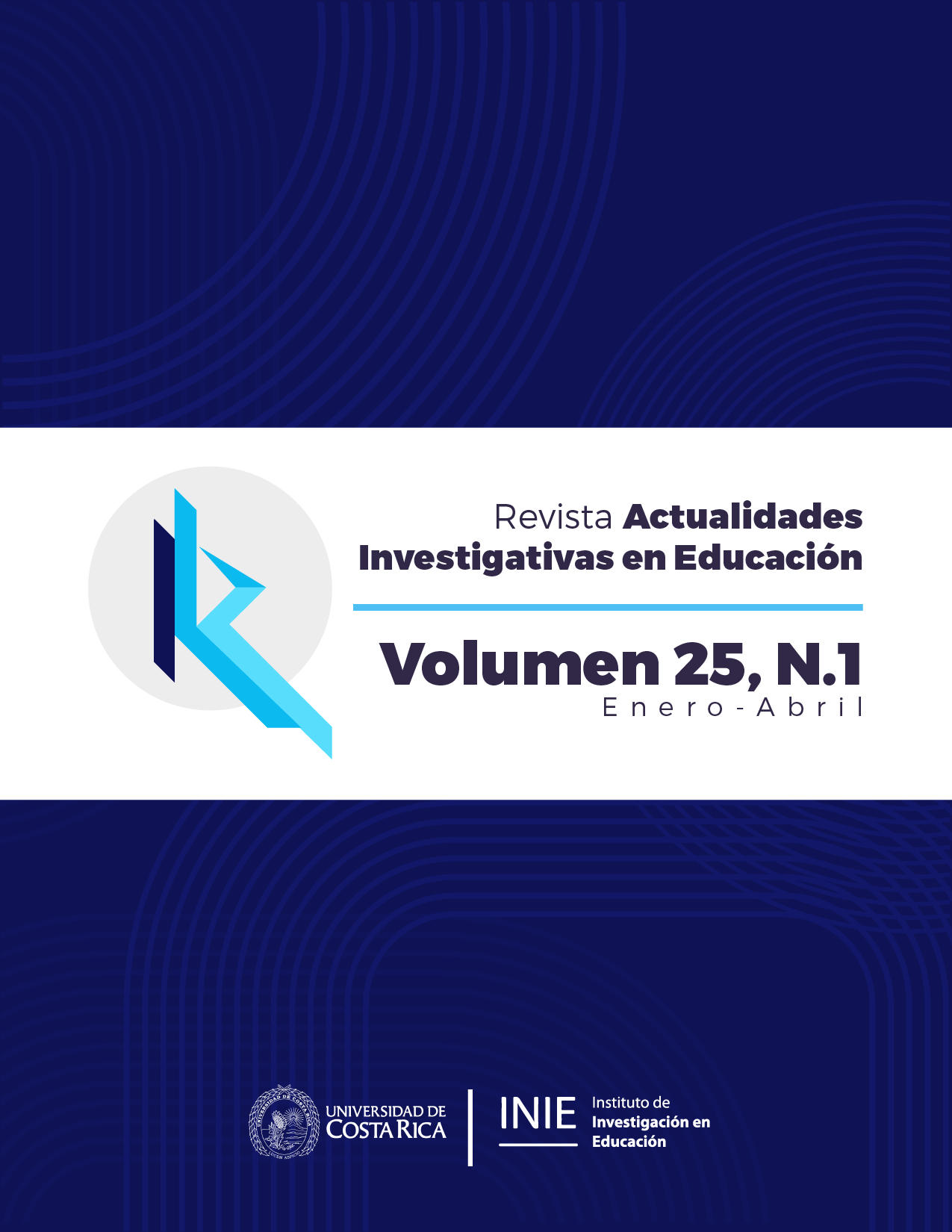Abstract
The COVID-19 pandemic has profoundly transformed the educational strategies employed in various university classes. Courses in Agribusiness have not been immune to these changes. The study aimed to explore Agronomy students' perceptions of how pedagogical adaptations required during the pandemic, including the transition between in-person and virtual modalities, had affected their motivation and ability to adapt to new technologies. A study was conducted with 84 undergraduate Agronomy students at the University of Costa Rica, Rodrigo Facio Campus, during June 2022. Participants completed a structured questionnaire covering 30 items, assessing aspects such as demographic profile, internet connectivity, availability of computer equipment, acceptance of virtual technologies, quality of the contents taught, and students’ personal motivation. Data collected were analyzed using structural equation modeling to examine causal relationships among the variables of interest. It was observed that personal motivation had a significant effect (β=0.23) on students' perceptions of Agribusiness education during the pandemic. This study underscores the importance that Agronomy students attribute to the quality of teaching by instructors and the implementation of practical activities as key drivers of their motivation in learning Agribusiness content.
References
Alhammadi, Salah. (2021). The effect of the COVID-19 pandemic on learning quality and practices in higher education—using deep and surface approaches. Education Sciences, 11(9), 462. https://doi.org/10.3390/educsci11090462
Brinson, James R. (2015). Learning outcome achievement in non-traditional (virtual and remote) versus traditional (hands-on) laboratories: A review of the empirical research. Computers & Education, 87, 218-237. https://doi.org/10.1016/j.compedu.2015.07.003
Canosa, Adela., Serrato, Jennifer., Migues, Alicia., y Mayo, David. (2021). Ciencias cognitivas y educación: Una propuesta de diálogo. Sophia, Colección de Filosofía de la Educación, 30, 43-70. https://doi.org/10.17163/soph.n30.2021.01
Davis, Fred., Bagozzi, Richard., y Warshaw, Paul R. (1989). User Acceptance of Computer Technology: A Comparison of Two Theoretical Models. Management Science, 35(8), 982-1003. https://doi.org/10.1287/mnsc.35.8.982
Dhawan, Shivangi. (2020). Online Learning: A Panacea in the Time of COVID-19 Crisis. Journal of Educational Technology Systems, 49(1), 5–22. https://doi.org/10.1177/0047239520934018
de Souza-Esquerdo, Vanilde., Sieber, Shana., y Bergamasco, Sonia. (2022). Challenges of teaching Rural Extension: Practices and methodologies in the production of knowledge with family farmers. Revista Brasileira De Educacao Do Campo, 7, e14751. https://periodicos.ufnt.edu.br/index.php/campo/article/view/14751
Grabau, Larry. (2008). Teaching and learning in agronomy: One hundred years of peer-reviewed conversations. Agronomy Journal, 100(3), S108-S116. https://doi.org/10.2134/agronj2006.0369c
Hedjazi, Yousef., y Omidi, Maryam. (2008). Factors Affecting the Academic Success of Agricultural Students at University of Tehran, Iran. Journal of Agricultural Science and Technology, 10(3), 205-214. https://jast.modares.ac.ir/article-23-11903-en.pdf
Kline, Rex. (2011). Principles and practice of structural equation modeling (3rd ed.). The Guilford Press.
Koenig, Johannes., Jaeger-Biela, Daniela., y Glutsch, Nina. (2020). Adapting to online teaching during COVID-19 school closure: Teacher education and teacher competence effects among early career teachers in Germany. European Journal of Teacher Education, 43(4), 608-622. https://doi.org/10.1080/02619768.2020.1809650
Mahler, Robert L. (2021). The pros and cons of teaching soil fertility live versus online. Natural Sciences Education, 50(1), e20053. https://doi.org/10.1002/nse2.20053
Martin, Florence., y Bolliger, Doris. (2018). Engagement Matters: Student Perceptions on the Importance of Engagement Strategies in the Online Learning Environment. Online Learning, 22(1), 205-222. https://doi.org/10.24059/olj.v22i1.1092
McKim, Aaron., Sorensen, Tyson., y Burrows, Michelle. (2021). The COVID‐19 pandemic and agricultural education: An exploration of challenges faced by teachers. Natural Sciences Education, 50(1), e20060. https://doi.org/10.1002/nse2.20060
Mehra, Vandana, y Omidian, Faranak. (2012). Note For Editor: Development An Instrument To Measure University Students’ Attitude Towards E-Learning. Turkish Online Journal of Distance Education, 13(1), 34-51. https://dergipark.org.tr/en/pub/tojde/issue/16899/176118
Mehta, Prashant. (2021). Teachers’ readiness to adopt online teaching amid COVID-19 lockdown and perceived stress: Pain or panacea? Corporate Governance: The International Journal of Business in Society, 21(6), 1229-1249. https://doi.org/10.1108/CG-09-2020-0385
Mortazavi, Forough., Salehabadi, Raha., Sharifzadeh, Masoume., y Ghardashi, Fatameh. (2021). Students’ perspectives on the virtual teaching challenges in the COVID-19 pandemic: A qualitative study. Journal of Education and Health Promotion, 10(1), 59. https://doi.org/10.4103/jehp.jehp_861_20
Ramlall, Indranarain. (2017). Applied Structural Equation Modelling for Researchers and Practitioners: Using R and Stata for Behavioural Research. Emerald Group Publishing Limited.
Sangeeta, y Tandon, Urvashi. (2020). Factors influencing adoption of online teaching by school teachers: A study during COVID‐19 pandemic. Journal of Public Affairs, e2503. https://doi.org/10.1002/pa.2503
Thien, Stephen., Buckley, Meghan., y McFee, William. (2008). A Century of Agronomic Education. Agronomy Journal, 100(S3), 89-102. https://doi.org/10.2134/agronj2006.0368c
Valsaraj, Blessy Prabha, More, Bhakti, Biju, Seena, Payini, Valsaraj., y Pallath, Vinod. (2021). Faculty experiences on emergency remote teaching during COVID-19: A multicentre qualitative analysis. Interactive Technology and Smart Education, 18(3), 319-344. https://doi.org/10.1108/ITSE-09-2020-0198
Van Wart, Montgomery., Ni, Anna., Medina, Pamela., Canelon, Jesus., Kordrostami, Melika., Zhang, Jing., y Liu, Yu. (2020). Integrating students’ perspectives about online learning: A hierarchy of factors. International Journal of Educational Technology in Higher Education, 17(1), 53. https://doi.org/10.1186/s41239-020-00229-8
Wang, Chih-Hsuan., Shannon, David M., y Ross, Margaret E. (2013). Students’ characteristics, self-regulated learning, technology self-efficacy, and course outcomes in online learning. Distance Education, 34(3), 302-323. https://doi.org/10.1080/01587919.2013.835779
Zhang, Jing., Addae, Helena M., Bakeman, Melissa., Boyraz, Maggie., Flaherty, Patrick T., Habich, Matthew., Johnson, Ann., Phillips, Anna., y Schreihans, Cynthia. (2020). Management Students’ Perceptions of Online Teaching Quality. E-Journal of Business Education & Scholarship of Teaching, 14(2), 33-52. https://eric.ed.gov/?id=EJ1276542
##plugins.facebook.comentarios##

This work is licensed under a Creative Commons Attribution-NonCommercial-ShareAlike 4.0 International License.
Copyright (c) 2024 Alexis Villalobos Monge, Mario Villatoro-Sánchez, Gustavo Quesada Roldán, Melissa Aguzzi Fallas, Carlos Loría Quirós



